Swiss watches are known for their quality, precision, and timeless designs. In this article, we’ll cover 9 of the best Swiss watch brands, each offering something unique in design, craftsmanship, and innovation.
Table of Contents
1. Rolex
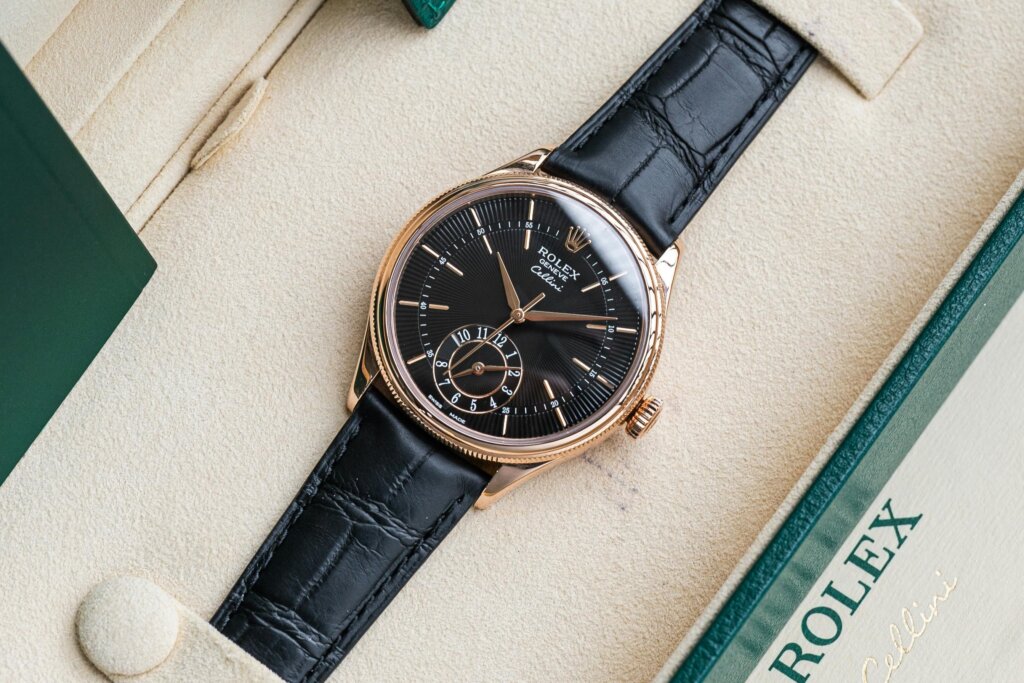
Founded: 1905 (moved to Geneva in 1919)
Specialty: Timeless designs and precision engineering
Rolex was founded in London and then relocated to Geneva, Switzerland, in 1919 and is known for models like the Submariner, Daytona, and Datejust.
What makes Rolex so great is their innovations, such as the first waterproof wristwatch (Oyster) and the first self-winding mechanism (Perpetual rotor). These breakthroughs, combined with timeless designs, exclusivity, and exceptional quality, make Rolex a true icon in Swiss watchmaking.
Rolex: Pros & Cons
Purchase Options
2. Richard Mille
Founded: 2001
Specialty: Ultra-luxury, avant-garde design, and technical innovation
Richard Mille is a relatively new brand compared to other watch brands, but it has quickly gained legendary status in the watch world.
Richard Mille is known for its futuristic designs and extremely technical watch complications.
Models like the RM 11-03 and RM 27-01 combine high-end materials like carbon TPT and titanium with extreme durability and precision.
What sets Richard Mille apart is its embrace of innovation, creating watches that are not just visually striking but also technically groundbreaking.
Richard Mille is one of the most expensive watch brands, with an average retail price of approximately $200,000. The brand’s models range from around $60,000 to over $1,300,000 MSRP, depending on the complexity and materials used.
Richard Mille: Pros & Cons
Purchase Options
3. Patek Philippe
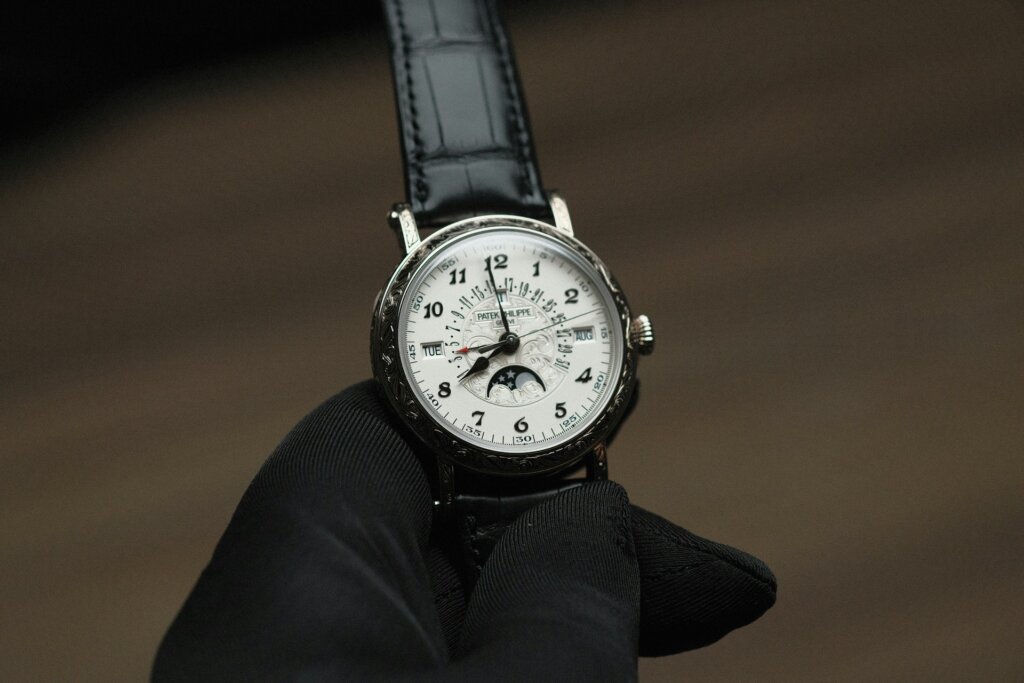
Founded: 1839
Specialty: Timeless elegance and complex watchmaking
Patek Philippe is widely considered one of the best watch brands in the world, known for its classic designs and expert craftsmanship.
Famous models like the Nautilus, Aquanaut, and Calatrava are loved by collectors and are also known for their advanced complications like the Annual and Perpetual Calendar.
As a family-owned company, Patek Philippe focuses on tradition and quality, producing a limited number of watches each year.
Patek Philippe: Pros & Cons
Purchase Options
4. Audemars Piguet
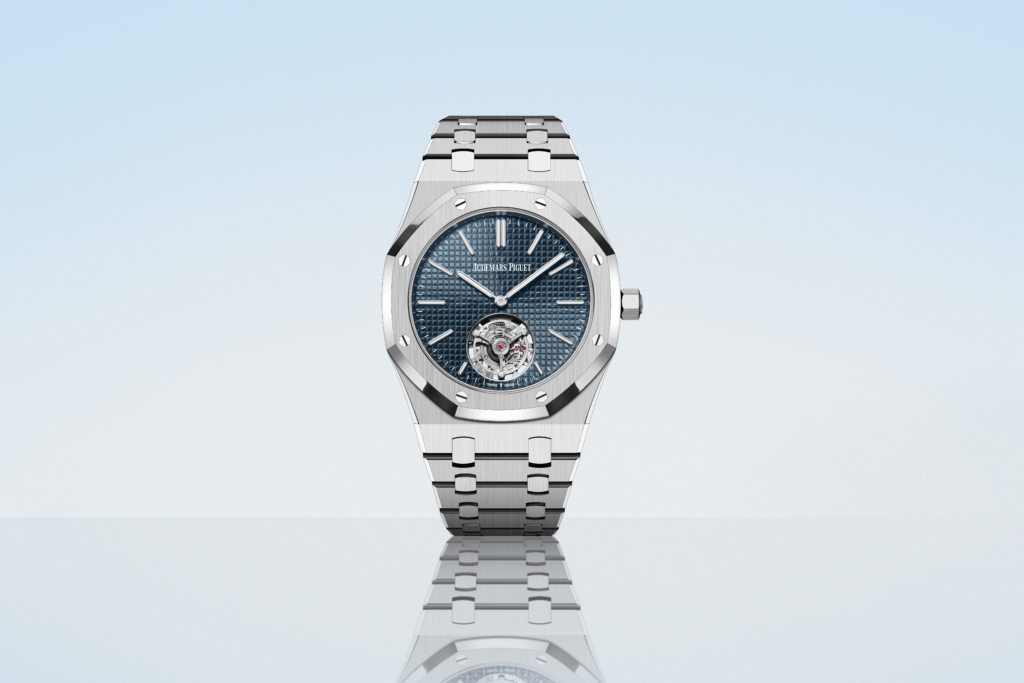
Founded: 1875
Specialty: Luxury watches with innovative designs
Audemars Piguet (AP) is one of the top names in Swiss watchmaking.
In 1972, the brand changed the industry with the Royal Oak, the first luxury sports watch made of stainless steel. This iconic watch design made AP famous worldwide. Other well-known collections include the Royal Oak Offshore and Code 11.59.
Audemars Piguet has set a high standard for watchmaking with its detailed craftsmanship, in-house movements, and exclusive timepieces which only a limited number are made each year.
Audemars Piguet: Pros & Cons
Purchase Options
5. Omega
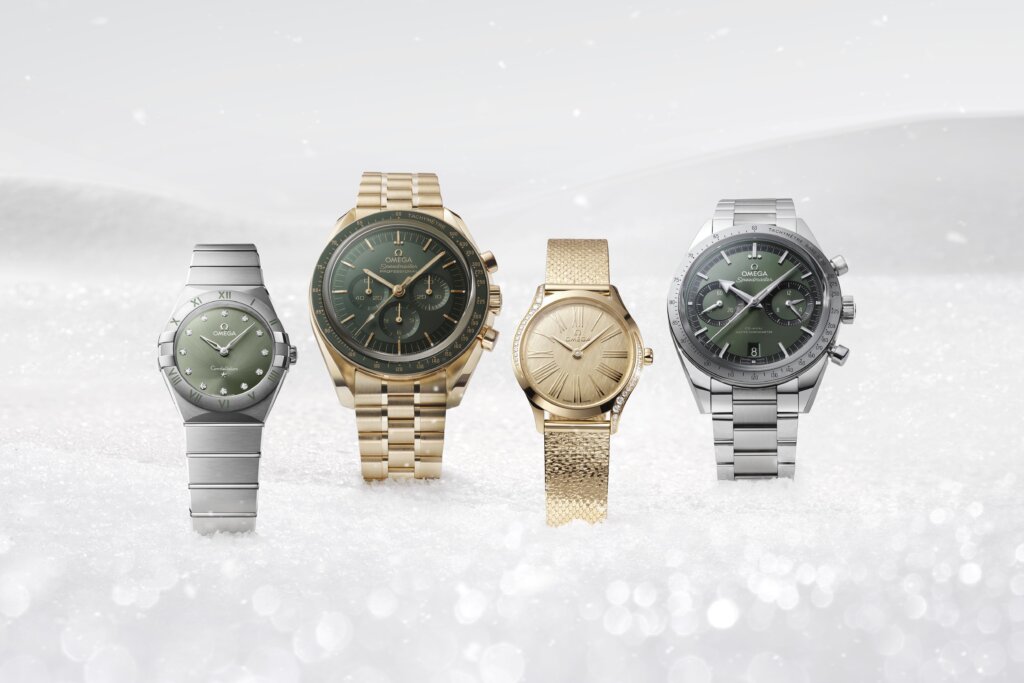
Founded: 1848
Specialty: Precision, innovation, and accessible luxury
Omega is a well-known Swiss watch brand known for its reliability, quality, and history.
Omega became popular when it was used as the official watch during Apollo’s 1969 moon landing with the Speedmaster Moonwatch, hence its nickname, “the first watch on the moon.”
Recently, Omega celebrated another historic milestone with the “First Omega in Space Returns“ edition, honoring the watch worn by astronaut Wally Schirra on the 1962 Mercury-Atlas 8 mission.
Omega’s watches are also known for their durability and functionality in extreme conditions. For instance, the Seamaster Planet Ocean has a water resistance down to 6000m and a robust design, and the Speedmaster has been tested and approved by NASA for space exploration.
Omega: Pros & Cons
Where to Buy
6. IWC Schaffhausen
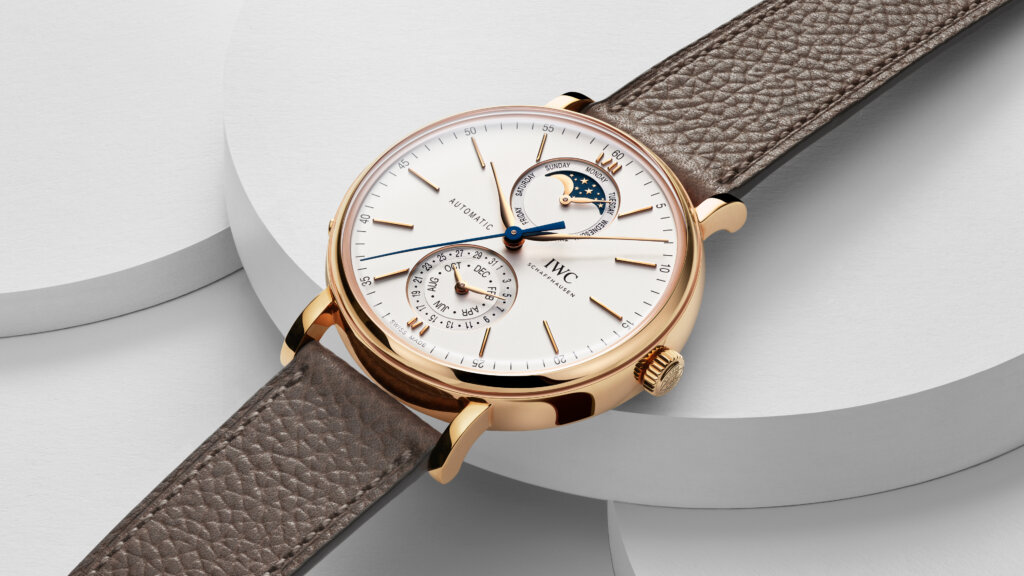
Founded: 1868
Specialty: Precision engineering, aviation-inspired designs, and understated luxury
IWC Schaffhausen is a Swiss watchmaker with a rich history of crafting high-quality watches that are both precise and elegant.
The brand is famous for its aviation-inspired collections, such as the Pilot’s Watches, and for creating iconic models like the Portugieser and the Portofino.
What sets IWC apart is its focus on functionality and outstanding quality. They combine robust materials like titanium and ceramic with quality craftmanship making their watches durable and stylish.
IWC offers a range of prices, with entry-level models starting at around $5,000 and high-complication pieces reaching upwards of $250,000. IWC watches on average trade for about 32.5% below on the secondary market.
IWC Schaffhausen: Pros & Cons
Purchase Options
7. Tudor
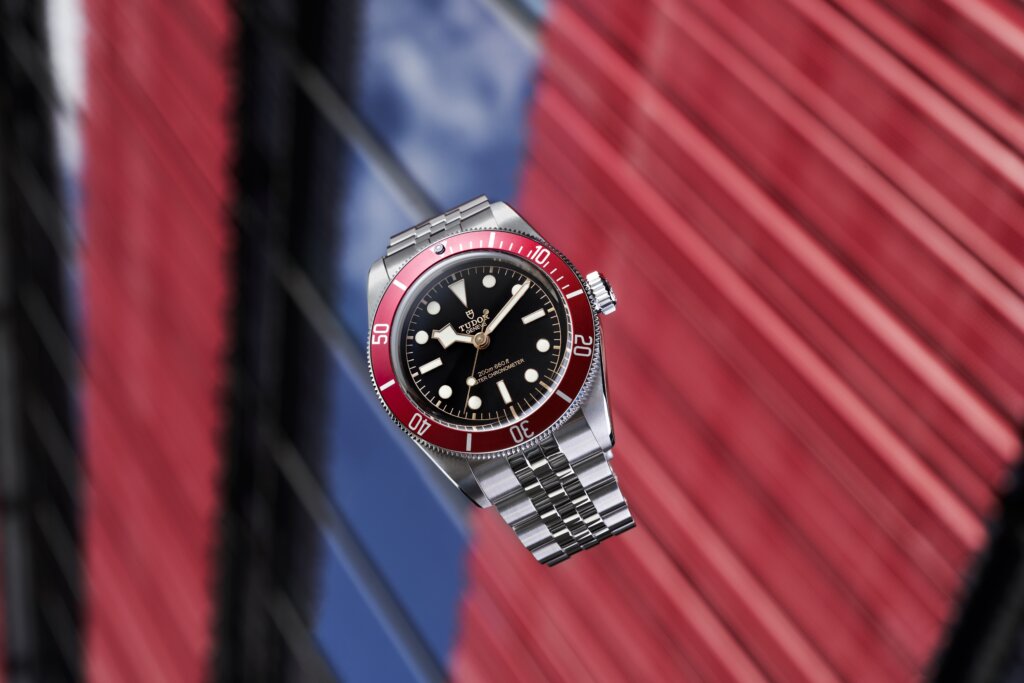
Founded: 1926
Specialty: Affordable luxury, quality craftsmanship, and timeless designs
Tudor is a Swiss watch brand established as a sister company to Rolex, offering exceptional quality and design like Rolex but at a more accessible price point.
The brand is best known for its tool watches, such as the Black Bay and Pelagos collections, which have vintage-inspired aesthetics with great functionality.
Tudor’s watches typically range from $2,000 to $6,000, with some models from the Black Bay collection priced between $10,000 and $30,000. This makes Tudor a good option for those seeking Rolex-level quality at a cheaper price.
Tudor: Pros & Cons
Where to Buy
8. Vacheron Constantin
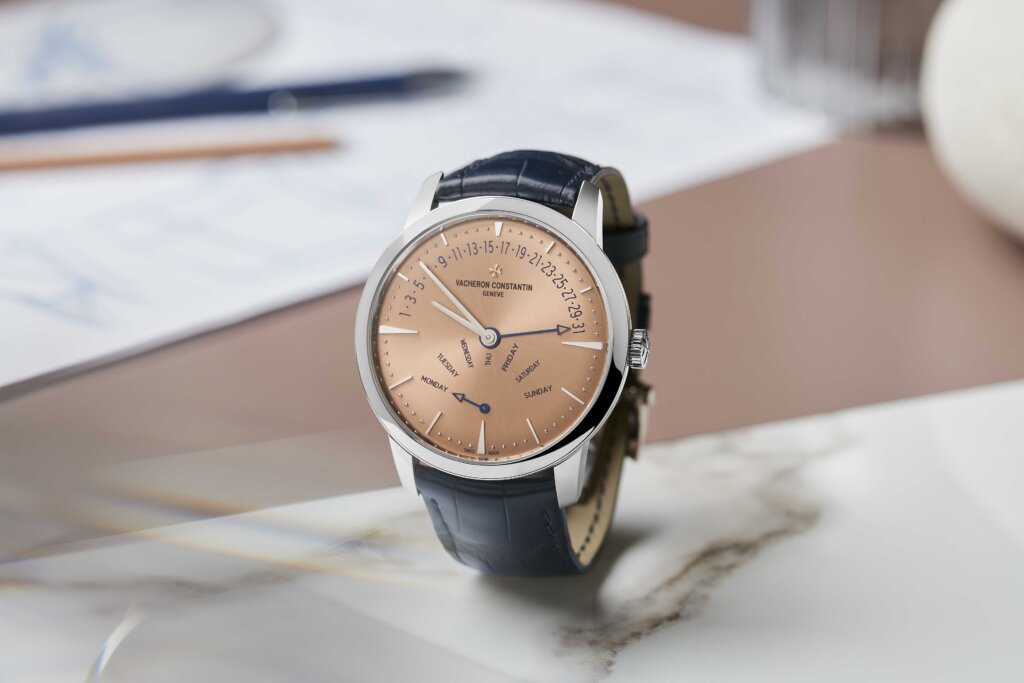
Founded: 1755
Specialty: High-end watchmaking, detailed craftsmanship, and timeless elegance
Vacheron Constantin is one of the oldest continuously operating watchmakers in the world, famous for their creativity, technical innovation, and excellent quality.
The brand has created masterpieces like the Patrimony and Overseas collections. The Patrimony has a classic style and the Overseas has a more modern feel. Their Traditionnelle line also features complex designs, representing the best in fine watchmaking.
What sets Vacheron Constantin apart is its focus on creating watches with extraordinary detail and craftsmanship, often featuring hand-engraved movements and elaborate designs.
A Vacheron Constantin watch typically ranges from $20,000 to over $1 million, depending on the complexity and rarity of the model. They have 6 models under $20,000 with their prices ranging from $12,700 to $19,100
Vacheron Constantin: Pros & Cons
Purchase Options
9. Longines
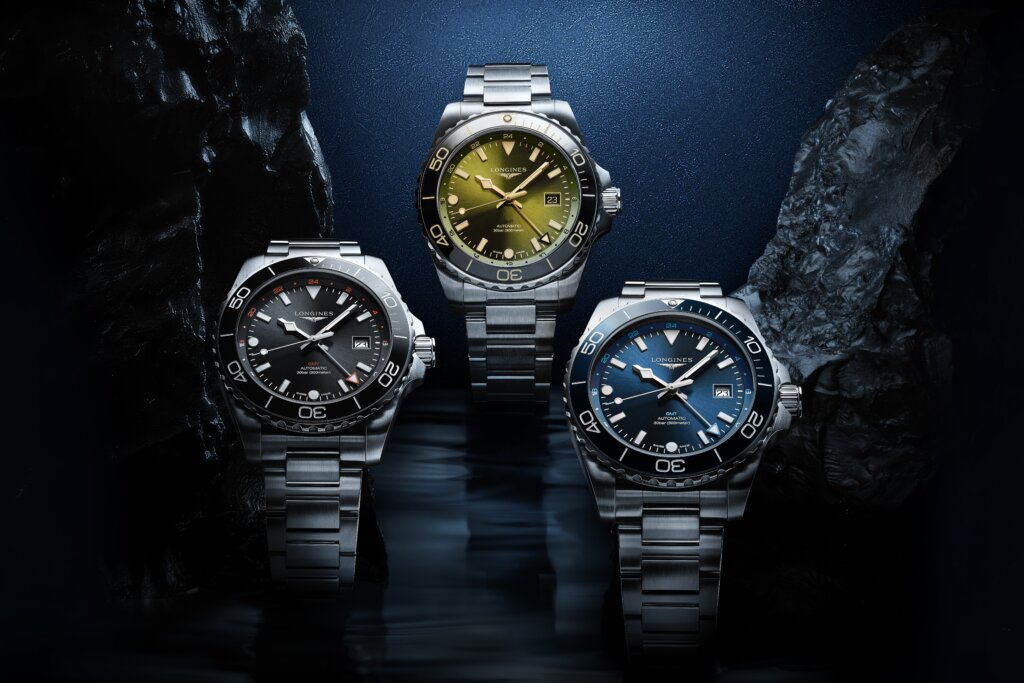
Founded: 1832
Specialty: Timeless elegance, precision, and exceptional value
Longines is one of the oldest Swiss watchmakers that is known for its rich history and dedication to crafting sophisticated, reliable watches.
Longines became known for collections like the Master Collection and the HydroConquest, which combine traditional Swiss craftsmanship with modern inventions.
Their watches often feature refined designs and a strong emphasis on precision, making them a favorite among enthusiasts and collectors.
What sets Longines apart is its ability to deliver high-quality, elegant watches at accessible price points, making luxury more attainable without compromising on performance.
Longines watches are priced between $1,000 to $20,000, with some unique watches going for even more.




